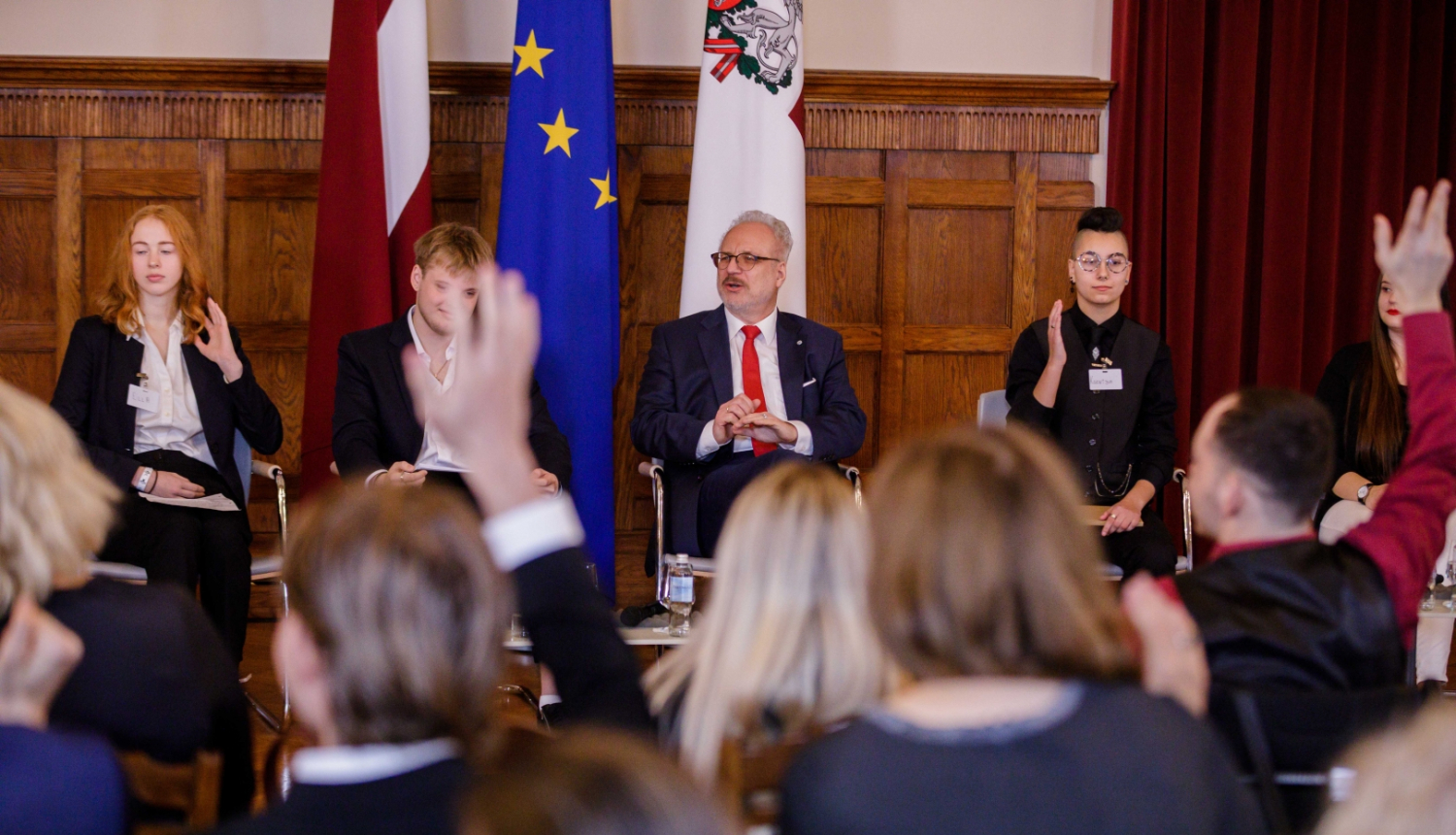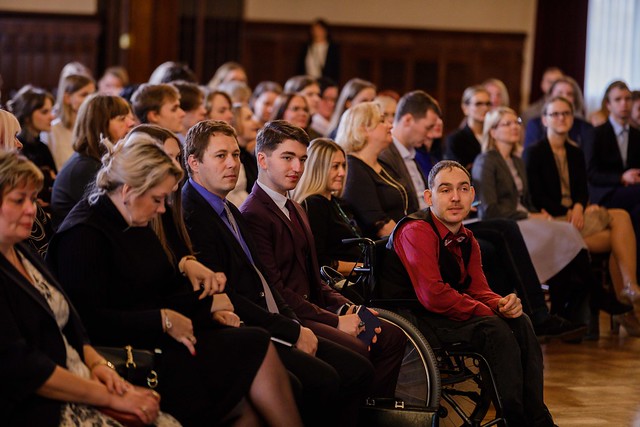On 24 October, during the UNESCO Global Media and Information Literacy Week, President of Latvia Egils Levits discussed with young people the role of media and information literacy and the impact of disinformation on perceptions of Latvia. "We have been living with Russian disinformation in Latvia for more than 30 years and have been confronted with it all the time. So we need to be aware that disinformation is part of our lives. We need to know how to deal with it so that we do not get hurt," said Egils Levits.
President of Latvia Egils Levits pointed out that the most common misinformation about Latvia is to create the impression that people of other nationalities are oppressed here and that our country cannot exist on its own.
"We are all confronted with disinformation. It needs to be recognised, because a person's view of the world is shaped by the information that underpins our actions. How we perceive and evaluate information determines the kind of society we live in," emphasized the importance of media and information literacy President E. Levits.
The discussion focused on several examples of disinformation in the context of Russia's war in Ukraine and how disinformation was used during the Covid-19 pandemic. As regards the spread of disinformation, the discussion concentrated on content creators or influencers. Together with the President, the young people also discussed how to distinguish between opinion and disinformation. "If, for example, someone who is not an epidemiologist starts talking about viruses and their spread, the question arises - how do you know that? You have to distinguish between facts and opinions. Everyone can have an opinion, but if it is not based on facts, it has to be evaluated," said E. Levits.
In the second part of the discussion, the young people focused on examples of deception and conspiratorial thinking, which are some of the forms of disinformation. In their conversation with the President, the young people drew attention to the fact that disinformation disseminators often use negative thinking and connections that are not true to influence the image of Latvia.
The President of Latvia was joined by Madara Šņickovska from Riga Secondary School No. 84, Ella Hermansone from Riga French Lyceum, Edgars Eduards Viļums from Riga Centre Humanitarian Secondary School, Ksenija Zlotina from Vidzeme University of Applied Sciences, Leandra Spriesle from Latvian Academy of Culture and Jānis Valdmanis from Riga Art and Media Technical College. The discussion was moderated by strategic communication expert Elīna Lange-Ionatamishvili.
The discussion "The image of my Latvia. How to distinguish information from disinformation?" is organised by Presidential Chancery in cooperation with the global development and education organisation "IREX" and the Latvian Safer Internet Centre.





